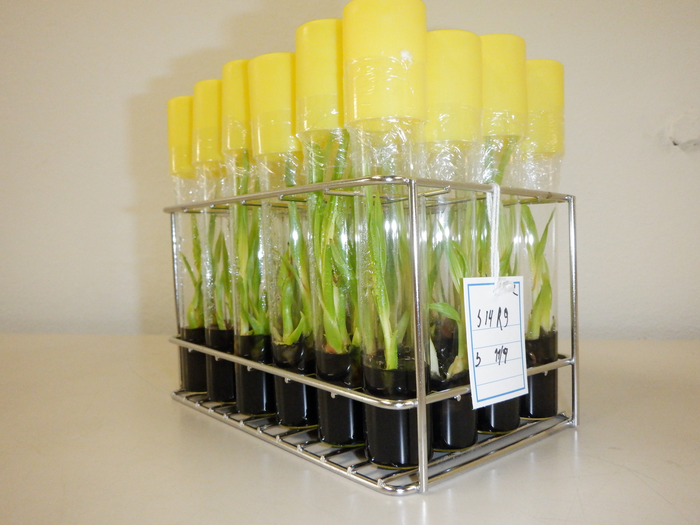Growing products that rich people want is great for developing nations but they face challenges. Trees grow slowly and natural plagues Lethal Yellowing Disease put existing ones at risk. The answer may be what made bananas the staple they are now: cloning.
"Coconut plants do not form side shoots. They put all their energy into one shoot that has to grow as fast and as tall as possible. This makes it very difficult to clone and store the plants," said Bart Panis of KU Leuven.

Image courtesy of Hannes Wilms at KU Leuven
So scientists set out to fix that. First they extracted the coconut tree embryo from the coconut. Then they applied the plant hormone to the meristem - or growing point - contained in the embryo. In this way, they succeeded in having the embryo form not only one shoot, but several side shoots. They managed, in turn, to split these shoot clusters and allow new side shoots to grow on them as well.
Unlike bananas, even though this is cloning it will help safeguard the coconut tree's genetic diversity. That is important because different varieties of the coconut plant have specific characteristics. Some are resistant to a particular disease or have a better oil composition, while others are more resistant to heat, drought or storms. This work will allow varieties to be cryopreserved at -196°C rather than stored in field collections where they are at risk of natural diseases.
The researchers have submitted a patent application.





Comments